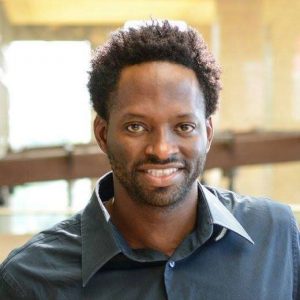Overcoming our discomfort
By Gibron Rahim
FIGURATIVELY burying our heads in the sand is particular to human beings. The expression has been used to describe the avoidance of dealing with difficult issues or situations. It is a peculiar idea, which stems from the (erroneous) belief that ostriches react this way to avoid danger. On the other hand, we in Guyana oftentimes avoid conversations we need to have, much like this action suggests. Sexual harassment of vulnerable groups – women and the LGBT Community – is one of these conversations. The issue needs to be addressed and dealt with for the lives and wellbeing of our fellow human beings are involved.
LEGAL DEFINITIONS
There are legal limitations to the handling of sexual harassment. The specific term ‘sexual harassment’ is mentioned in the Prevention of Discrimination Act of 1997. As defined under Section 2 of the Act: “‘sexual harassment’ means unwanted conduct of a sexual nature in the workplace or in connection with the performance or work which is threatened or imposed as a condition of employment on an employee or which creates a hostile working environment for the employee.”
Section 8 of the Act states that: “Any act of sexual harassment against an employee committed by an employer, managerial employee or co-worker shall constitute unlawful discrimination based on sex within the meaning of Section 4 of this Act.”
Furthermore, according to Section 4: “A person discriminates against another person if the first-mentioned person makes, on any of the grounds mentioned in Subsection (2), any distinction, exclusion or preference the intent or effect of which is to nullify or impair equality of opportunity or treatment in any employment or occupation.”

BROADENING THE DEFINITION
The grounds mentioned in Section 4 include race, sex, religion and ethnic origin, to name a few. Sexual orientation and gender identity and expression are notably missing. Thus, members of the LGBT community are not protected from sexual harassment in the workplace under the law. Additionally, there is no coverage under the law for sexual harassment that takes place in spheres of society other than in the workplace.
The legal limitations only tell part of the story. There is a social aspect to sexual harassment that fuels it. The Pepperpot Magazine sat down with women’s rights activist, Akola Thompson, who noted that it would be a disservice to look at sexual harassment as solely affecting working women. Sexual harassment can occur in the home.
Street harassment, a form of sexual harassment, is all too common. Women who face these forms of harassment have no idea of where or who they can go to report incidents, Thompson explained. Added to the difficulties in reporting sexual harassment of women is the practice of victim blaming. Fingers are all too commonly pointed at women who are sexually harassed. Their dress and/or behaviour are attributed as the cause of sexual harassment.
Thompson cautioned against looking at the issue of sexual harassment in isolation. There are numerous factors that need to be taken into consideration. There is one in particular that has to be dealt with. “First, you have to deal with the whole culture that sexual violence is normal,” she said. She questioned how we can even go about beginning to change that culture since she noted that people do not necessarily want to change. Even then, there is the question of enforcement and getting victims of sexual harassment to come forward because of the stigmatisation associated with speaking up. “When it comes to solutions, you have to take a more holistic approach and not just look at one aspect.”
Before speaking to the Pepperpot Magazine that day, Thompson had just come out of a “Women’s Wednesdays” session.
This new initiative sees her and a panel of other women discussing issues affecting women over a Facebook live feed, while also responding to questions posted by viewers in real time. It takes place every Wednesday at lunchtime. The topic of this past Wednesday’s discussion was coincidentally sexual harassment.
The Women’s Wednesdays guest panelists spoke about how sexual harassment has affected each of them. Every single one of them had a story to tell about sexual harassment. They described how sexual harassment shapes the way they choose to dress to try to mitigate being catcalled and receiving unwanted comments on the streets. Ignoring the harassment makes it worse they said. Some of them recalled truly upsetting incidents where they were touched inappropriately by men while out in public. They described feeling uncomfortable and unsafe.
Perhaps most disturbingly, as the panelists noted, some men believe that women like to be given these types of treatment and the issue is very much linked to power and control. Though they were sure to distinguish between sexual harassment and giving an appropriate compliment, the women also emphasised that a woman is not inclined to respond to a compliment. That point is very much linked to the view of women as possessions. In speaking to the Pepperpot Magazine, Thompson herself noted that even when persons intervene to stop sexual harassment, the language used, such as “she’s not yours”, implies the belief that women are possessions.
SEXUAL HARASSMENT AND LGBT GROUPS
Members of Guyana’s LGBT community are also vulnerable to sexual harassment. Joel Simpson, Managing Director of the Society Against Sexual Orientation Discrimination (SASOD), in a correspondence with the Pepperpot Magazine explained, that homophobia is a gender-based prejudice and is often linked to the sexism that is the root of sexual harassment. He said that lesbian and bisexual women are particularly at risk since their sexual identities are often fetishised by perpetrators. He noted, though, that while Guyana generally has good laws on sexual offences generally, gaps exist in relation to sexual harassment.
This is compounded further by the complete lack of legal protection from discrimination on the grounds of sexual orientation, gender identity and expression in the workplace. There is little to no legal recourse for LGBT workers who are sexually harassed. SASOD is advocating for the Prevention of Discrimination Act of 1997 to be amended to include sexual orientation, gender identity and expression. “Currently, our communities have no real protection under the ordinary laws of Guyana,” Simpson said.
Simpson referred to the stereotypes about LGBT people that abound in Guyana. The LGBT community suffers a great deal of street-based sexual harassment that is often intended to ridicule and shame. These, he said, are rooted in the stereotypes that view homosexuals and bisexuals as promiscuous.
It is clear that sexual harassment is a complex problem facing Guyanese society. Men can be touchy about the subject of sexual violence as Thompson has discovered through Women’s Wednesdays. This makes it all the more certain that we absolutely need to have these dialogues, uncomfortable as they may be. And if we are witness to an incident of sexual harassment we need to speak up, if we can. “Try to intervene,” Thompson said. “Don’t just stand by and let something happen.” Growing up, she was taught not to question certain things that would happen, such as domestic violence. But she knows different now. ‘Women’s Wednesdays’ tries to create a space where women can discuss problems affecting them freely.
POSSIBLE SOLUTIONS
To end the problem of sexual harassment, a change is needed in Guyana at every level according to Simpson. The political electorate, he said, needs to change and strengthen laws and policies and send a clear message to the population that sexual harassment in any form, as well as homophobic and transphobic discrimination, are serious offences. He also observed that the State has a duty to educate its citizens. He illustrated a few ways in which this can be done. Partnerships with civil society can be strengthened and resources can be provided for education at community and local levels.
The Ministry of Social Protection can develop mass-media campaigns and partner with the state media, especially to roll out public service announcements. “There is so much that can be done with the resources we have available to us in this country to tackle these social ills. All it takes is the will to create change,” he said.











